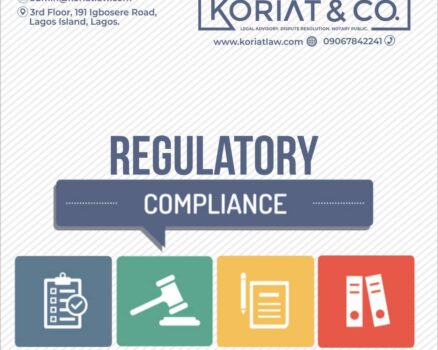
Introduction
Consumer lending is a viable business in almost all parts of Nigeria in view of the large population of over 200 Million people (majority of which are young people), the technological infrastructure and enabling regulatory environment. Anambra State is among the top five (5) commercial hubs and investment destinations in Nigeria. According to the National Bureau of Statistics, the total value of capital importation into Nigeria in the second quarter of 2022 stood at US$1.5 billion with Anambra State getting $24.71 Million making it rank third after Lagos State ($1,054.18 Million) and Abuja ($453.95 Million) which are the first and second investment destinations in Nigeria respectively.
With a population of over nine (9) million people in 2022, Anambra State houses three (3) highly commercial cities in the South Eastern part of Nigeria, namely: Onitsha and Nnewi, and the state capital, Akwa.
Micro lending business is largely regulated by the different governments of the 36 States in Nigeria and the Federal Capital Territory, Abuja. Being an item in the Residual Legislative List (which are exclusively reserved for the federating units of Nigeria), the different States are constitutionally empowered to make laws for the regulation of money lending businesses within their territories.
The law regulating the operation of money lenders in Anambra State is the “Money Lenders’ Law”, Cap 92 of the Revised Laws of Anambra State, 1991. In order for an individual or organization to be a money lender under this law, the person or organization must first obtain the money lender’s licence of the Anambra State. It is an offence to engage in money lending business in any part of Anambra State without the licence of the State Government.
What agency is responsible for licensing and regulation of money lender business in Anambra State?
The licensing of a money lender company in Anambra State is one of the functions of the Ministry of Trade, Commerce and Industry of the Anambra State Government (“Ministry”). The Ministry grants a money lender company a money lender’s license through its Department of Small and Medium Enterprise (SME) to operate money lending activities within the State.
Is there any mandatory share capital or number of directors for a money lender business in Anambra State?
There is no provision for a mandatory minimum share capital for a money lending company in Anambra State. Therefore, a money lender company seeking to do business in Anambra State may be registered with just One (1) Million share capital to minimize costs.
However, it is mandatory for a money lender company seeking to do business in Anambra State to have, at least, two (2) adult directors. There is no qualification requirement for the directors.
You can learn more about how to incorporate a company in our previous article here.
What are the applicable costs for incorporating a Money Lender Company?
The cost of incorporating a company in Nigeria is dependent on the amount of share capital of the company. The share capital of a company attracts a stamp duty payable to the Federal Inland Revenue Service (“FIRS”) in addition to the incorporation or filing fee chargeable by the Corporate Affairs Commission (“CAC”).
For example, the total sum for the incorporation of a One (1) Million share capital company in Nigeria is about Fifty Thousand Naira (N50,000).
What are the requirements and procedure for granting money lender licence in Anambra State?
The procedure for application of money lender’s license in Anambra are in two phases, though through a singular application.
First, an application for registration of a money lender company must be made, alongside with all required documents, to the Department of Small and Medium Enterprise (SME) of the Ministry. The Ministry will review the application, and conduct a physical office inspection of the applicant’s office, and then forward the application to the Magistrate Court for grant of FORM B and FORM C which are the licenses required for the operation of a money lenders business in Anambra State.
The following are the requirements for registration of a money lender company with the Ministry:
i. An application letter in the prescribed form on the letter head paper of the company, addressed to the Honourable Commissioner of the Ministry;
ii. Copies of the company’s certificate of incorporation, Memorandum and Articles of Association (“MEMART”), and other incorporation documents showing the share capital, shareholders and directors of the company. Please note that the MEMART must contain an object to the effect that the Company engages in the business of money lending services;
iii. Three (3) years Tax Clearance Certificate of at least two (2) individual directors of the Company. Please note that it is required that the company must have at least two (2) adult directors;
iv. Receipt of payment of Registration Fee;
v. Proof of physical office in Anambra state;
iv. Company’s bank statement; and
v. Means of identity and bio-data of the two (2) directors.
Upon receipt and review of application, the Ministry will decide whether to approve or decline the application. If the Ministry approves the application, it will then forward the application to the Chief Registrar of the Magistrate Court in Anambra State who will then open a file for the applicant, and assign it to any Magistrate within the jurisdiction for the grant of money lender’s licence.
If the application is successful, a money lender’s license will be issued to the applicant by the assigned Magistrate for a period of one (1) year and shall be subject to renewal after expiration.
What are the benefits of obtaining money lender’s license?
i. Right to institute an action in court to recover the principal loan and accrued interest from a defaulting borrower.
ii. Right to own moveable and immovable property in the company’s name;
iii. Money lender certificate and licence serve as an added advantage to enhance brand visibility;
iv. Money lender licence can attract serious investors and create an opportunity for business expansion if a money lending business is registered and licensed;
v. Protects the business and promoters from criminal liability for doing money lending business without regulatory license. It is an offence to lend money for purpose of attracting interests unless the lender has obtained a money lender’s certificate and license.
What are the estimated costs for company incorporation and obtaining a money lender’s license in Anambra State?
| Particulars | Cost |
| Company Registration | N50,000 |
| Cost of Registration with the Ministry | N120,000 |
| Tax Registration for New Company | N50,000 |
| Cost of physical office inspection | N50,000 |
| Tax Clearance Certificate of directors for 3 years | Available on request |
| Miscellaneous | Available on request |
| Professional fee | Available on request |
What is the estimated timeline for completion of the set-up of a money lender company in Anambra State?
Please note that the entire process for company registration and getting a money lender’s license of Anambra State can be completed within a period of one (1) month.
Is there any other mandatory post-licensing registration for digital lenders in Anambra State?
Yes. The Federal Competition and Consumer Protection Commission (“FCCPC”) has in the exercise of its powers under its enabling law, ventured into the regulation of digital lending business in Nigeria. Recently, in exercise of the powers conferred upon it by sections 17, 18 and 163 of the Federal Competition and Consumer Protection Act, 2018 (“the FCCP Act”), and all other powers enabling it in that behalf, the FCCPC issued the Limited Interim Regulatory/Registration Framework and Guidelines for Digital Lending, 2022 (“Guidelines for Digital Lending 2022”).
According to FCCPC, the Guidelines for Digital Lending 2022 was developed and adopted by the Joint Regulatory and Enforcement Task Force as a temporary step to establishing a clear regulatory framework for the lending space. The Guidelines for Digital Lending 2022 provides for a mandatory registration of digital lenders with the FCCPC and sets out the registration requirements and additional regulatory approval of the FCCPC to carry out the business of digital lending in Nigeria.
Also, the Guidelines for Digital Lending 2022 provides that every applicant seeking to register with the FCCPC must present an evidence of registration with the Nigerian Data Protection Bureau (“NDPB”) and membership of a trade or professional association (e.g. Money Lenders Association of Nigeria). This presupposes that a digital lender must register with the Money Lenders Association or any similar association just the same way Finance Companies register with Finance Houses Association of Nigeria or Microfinance Banks with the National Association of Microfinance Banks.
SEE BELOW FOR MORE:




